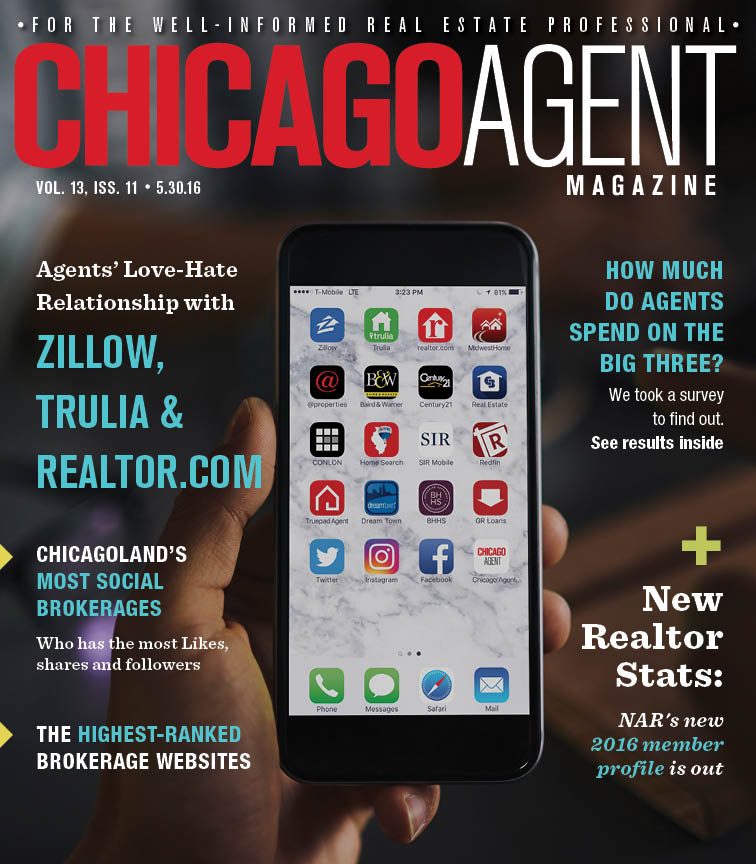Since their emergence in the early 1990s and the early 2000s, syndication sites have disrupted the real estate world and divided Realtors. Viewed at once by agents as competition and as yet another source for leads, the “Big Three” portals – Trulia, Zillow and realtor.com – are here to stay. Increasingly, Realtors are taking advantage of what the sites have to offer, even if they don’t agree with the business model or practices that have made them such a success with consumers.
These days, the sites are offering a wider array of tools to attract agents and help them market their listings. Granted, those perks are for Realtors who choose to pay the syndicators’ fees.
“I equate the third-party portals to what the Sunday papers used to be — full of print ads,” says Andrea Geller of Coldwell Banker. “You can control that. You can control distribution, content and the text in your listings. You can control whether your listings are in the paper or out of the paper. With portals, it’s a lead. If it’s online, it’s a lead.”
More and more consumers are making the Internet their first stop in their quest to buy a home. Curiously, using the Internet has lengthened the search process to an average of 10 weeks, with those consumers visiting an average of 10 homes, according to the NAR 2015 Profile of Buyers and Sellers. For people who did not use online sources, the search process took about five weeks and included seeing five homes.
Quite a bit has changed in the homebuying process, for both consumers and agents. And the rise of real estate search portals played a significant role in ushering in that change.
The Power of Portals
Realtor.com, the oldest of the three main portal sites, was established in 1995 as an offshoot of the National Association of Realtors. It was the dominant force in online listings for several years. Realtor.com provided listings through an agreement between parent company Move, Inc,. and the NAR subsidiary Realtors Information Network, limiting the information on the site to that which was provided by Realtors proper.
Continued on next page >>

If they could manage to get the home info right…it would be a different story!!!! The home owner thinks the agent has put in the wrong data. They are an ongoing source of problems for the listing realtor. The best one thkugh is when they put a price on the home without ever seeing it!!!!!! Don’t know why realtors put up with it!!!!!!!!!
Looks like Chicago agent magazine has drink the Kool-Aid of Trulia and Zillow
Thanks for your comment, David! We took a balanced view of the syndication sites, and throughout the story, our terrific sources explain the pros/cons of all three; definitely let us know, though, if there is some aspect of the topic that you think we missed.
Corrine Guest nailed it. It absolutely blows my mind that agents are actually giving up control of their own marketing to unlicensed 3rd parties like Zillow and Trulia, and then paying for the privilege of paying them to get leads from their own listings. What this article doesn’t mention that Realtor listings and FSBO (for sale by owner listings) are co-mingled on Zillow. The licensed agent has no control over an unreliable FSBO listing in the same neighborhood as one of their listings, which can negatively affect property values.
http://www.davidbarrhomes.com